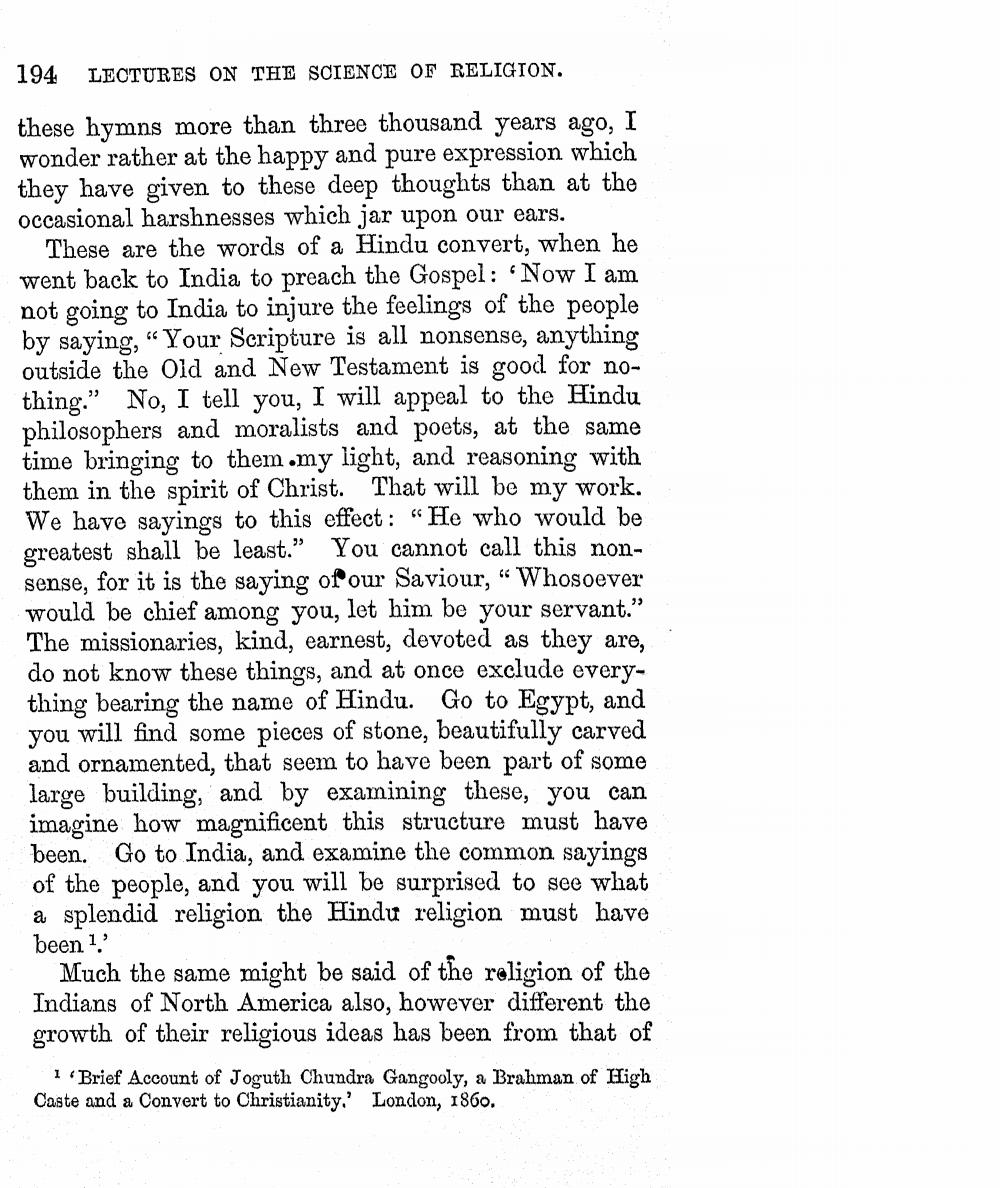________________
194 LECTURES ON THE SCIENCE OF RELIGION.
I
these hymns more than three thousand years ago, wonder rather at the happy and pure expression which they have given to these deep thoughts than at the occasional harshnesses which jar upon our ears.
These are the words of a Hindu convert, when he went back to India to preach the Gospel: Now I am not going to India to injure the feelings of the people by saying, "Your Scripture is all nonsense, anything outside the Old and New Testament is good for nothing." No, I tell you, I will appeal to the Hindu philosophers and moralists and poets, at the same time bringing to them .my light, and reasoning with them in the spirit of Christ. That will be my work. We have sayings to this effect: "He who would be greatest shall be least." You cannot call this nonsense, for it is the saying of our Saviour, "Whosoever would be chief among you, let him be your servant." The missionaries, kind, earnest, devoted as they are, do not know these things, and at once exclude everything bearing the name of Hindu. Go to Egypt, and you will find some pieces of stone, beautifully carved and ornamented, that seem to have been part of some large building, and by examining these, you can imagine how magnificent this structure must have been. Go to India, and examine the common sayings of the people, and you will be surprised to see what a splendid religion the Hindu religion must have been 1.'
Much the same might be said of the religion of the Indians of North America also, however different the growth of their religious ideas has been from that of
1 Brief Account of Joguth Chundra Gangooly, a Brahman of High Caste and a Convert to Christianity.' London, 1860.




